Pavlo Yakovych Smovzh is the chief editor of the newspaper Tribuna Pratsi from Ivanivka in Kyiv Oblast. With tears in his eyes, he recalls the long days of occupation and the atrocities committed by Russians. He had to hide from them, and after liberation, he nearly had to personally fund the newspaper’s revival. He shared his story with correspondents from the National Union of Journalists of Ukraine (NUJU).
“In the first days, the ‘kadiryvtsi’ [Kadyrov fighters] entered Ivanivka and didn’t discriminate: whoever they saw, they shot. Even dogs – not just people.”
On his office desk lies his book about the Holodomor in Ukraine during the 1930s. The author himself admits that he could never have imagined he would be forced to endure such horror.
— My wife had some chickens, so we had a bit of grain. And I had a small grain crusher. So, I milled that grain and sieved it. And my wife baked bread. I have a photo of that terrible bread… like during the Holodomor, but still – bread… And we have a fish processing plant near Ivanivka, and when there was no electricity, there was no way to aerate the water for fish enrichment. At that time, the enterprise managers distributed fish for free. Friends and even strangers brought me fish. We managed to get through somehow, — recalls Pavlo Smovzh with tears in his eyes, thinking back to March 2022.
For many years, Pavlo Yakovych has been leading the editorial team of the Tribuna Pratsi newspaper. The historic building, over a hundred years old, is located right in the city center. Everything around is neat and beautiful, as if in a lord’s estate. One could think an experienced landscape designer worked on it, but in reality, Pavlo Yakovych himself takes care of the surrounding area. He was deeply concerned that the occupiers would destroy his second home. Thankfully, the building didn’t suffer much – an explosion shattered windows and damaged walls, but inside, the Russians ransacked everything.
— They were quite thorough in their pillaging, — Mr. Smovzh recounts. — They tore off the bars from one window; they didn’t bother with the doors. They ripped off several doors inside, causing havoc. They turned everything upside down in the office, tables, cabinets, and drawers. What were they searching for?… They took away documents. I had documents regarding the church – I had been ‘fighting’ with the local Moscow-aligned church for three years. Well, not just me – a whole group. I faced 11 criminal cases initiated by Moscow lawyers and our local priest.
By the way, those cases were immediately closed for lack of evidence of a crime. But russians took everything. The documents were later found in a neighboring village at a school where the Russian occupiers were based. They also found remains of computers and other equipment that the enemies had stolen and damaged. So, I had to find funds for new equipment.
— That’s when the NUJU came to the rescue. Thanks to the organization’s head, Serhiy Tomilenko, The Washington Post’s editorial staff gifted me a computer,— the editor gratefully reported.
But that was after the liberation of the town. Enduring the reign of the russians lasted for over a month – that’s how long the horrors of the occupation of his hometown, Ivanivka, lasted.
— In the first days, the ‘kadiryvtsi’ (refers to the occupying forces) entered Ivanivka. They would shoot at anyone they saw, whether human or even dogs. A woman was walking on the street, and they opened fire with automatic weapons – they shattered her legs. A 60-year-old woman, what threat did she pose? I didn’t have time to leave, nor could I. My wife’s mother is 91 years old; it would have been impossible for her, she can hardly move. There was no time for contemplation. On the 24th, right after lunch, they were already in Ivanivka. No one expected it to happen so quickly,— our interlocutor said.
So, survival was the priority. The man sensed danger – the occupiers came to journalists almost immediately.
— I knew it would be like this, so I made a hiding place in my house just in case. But I still don’t understand why they didn’t look for me. They drove past my house, looking for soldiers… Maybe no one betrayed me, that’s what people tell me. They say I’m the kind of person nobody would betray, — the journalist proudly states. — As soon as we were liberated, there was no electricity for a week, but as soon as it was restored, I immediately started preparing the newspaper. People needed information. I immediately decided to document all the crimes.
“I personally documented all the atrocities committed by the Russians through photography.”
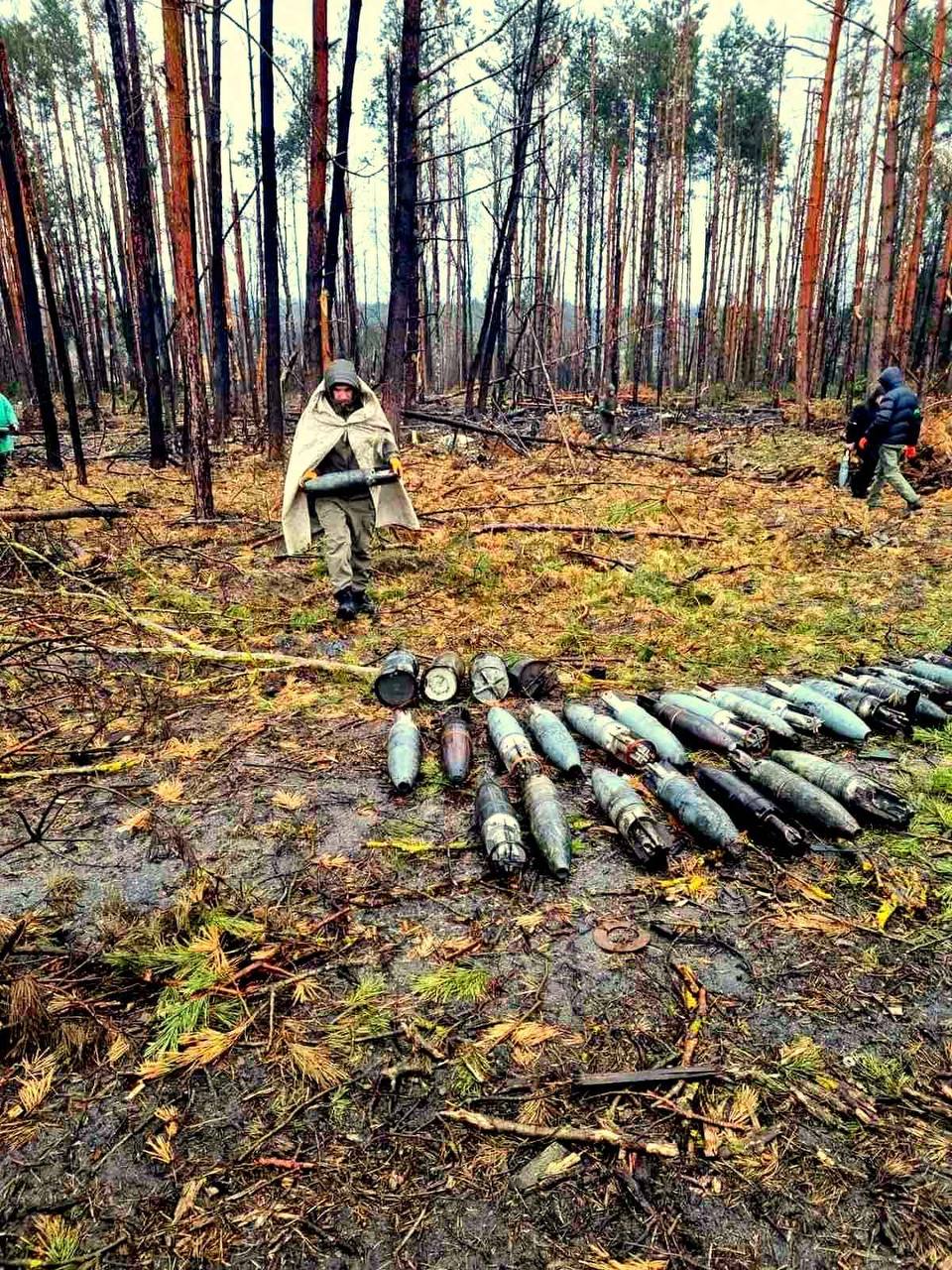
After the de-occupation, Pavlo Smovzh traveled to all the villages in the region where there had been air raids, documenting everything. There were some interesting findings, like a note from a Russian pilot who was sent to bomb villages near Kyiv. But his plane was shot down.
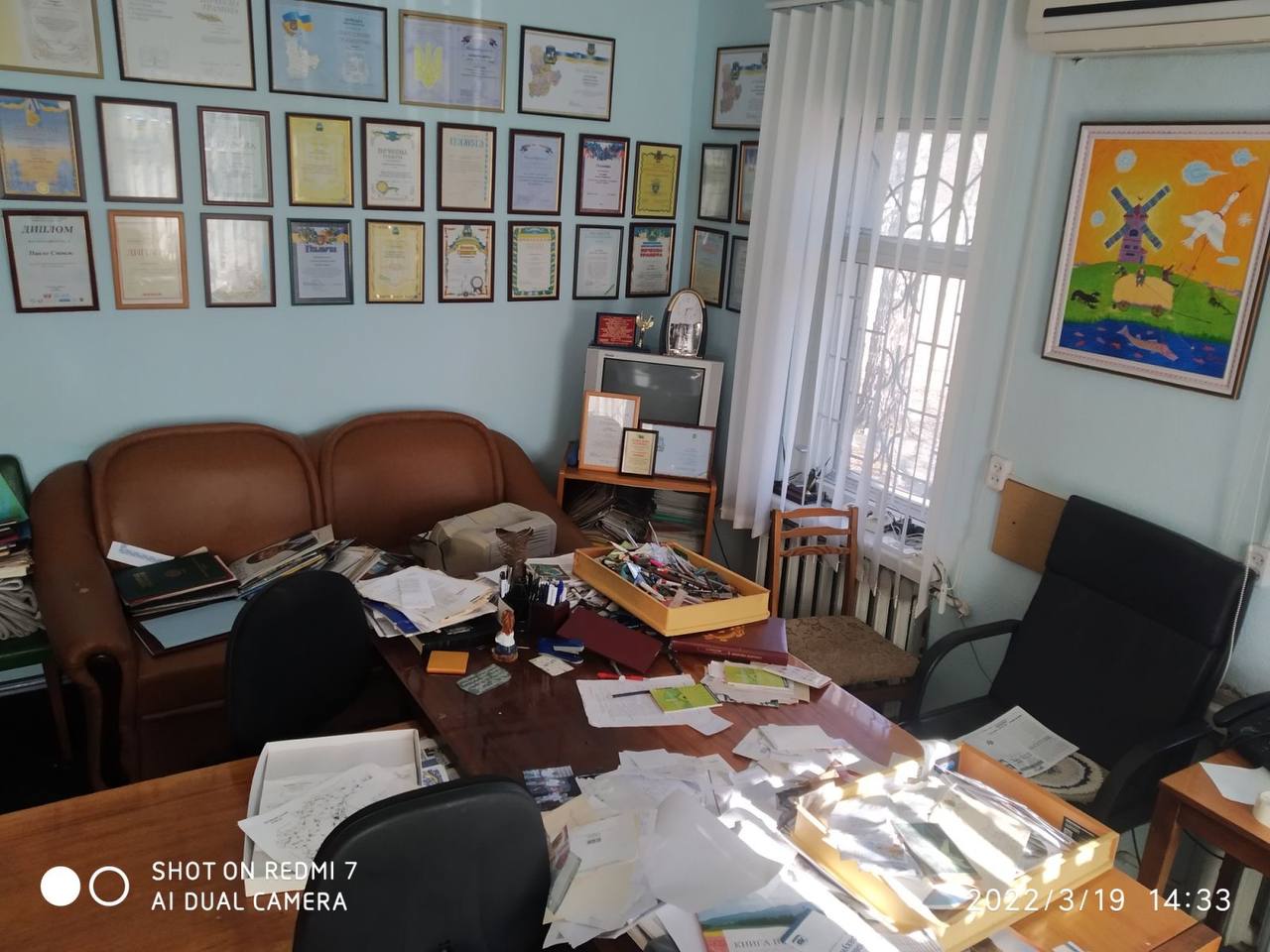
— The note contained coordinates: Prybyrsk – that’s our neighboring village, Ivankiv, Hostomel… I personally documented all the atrocities committed by the Russians through photography. I’ve been passionate about photography for many years; we didn’t even have a photo correspondent, I took the pictures myself,— Pavlo Smovzh continues his story.
He had to run the newspaper almost single-handedly and mostly at his own expense, borrowing a significant amount of money – all to ensure that readers had information and knew the truth about Russian crimes in the war against Ukraine.
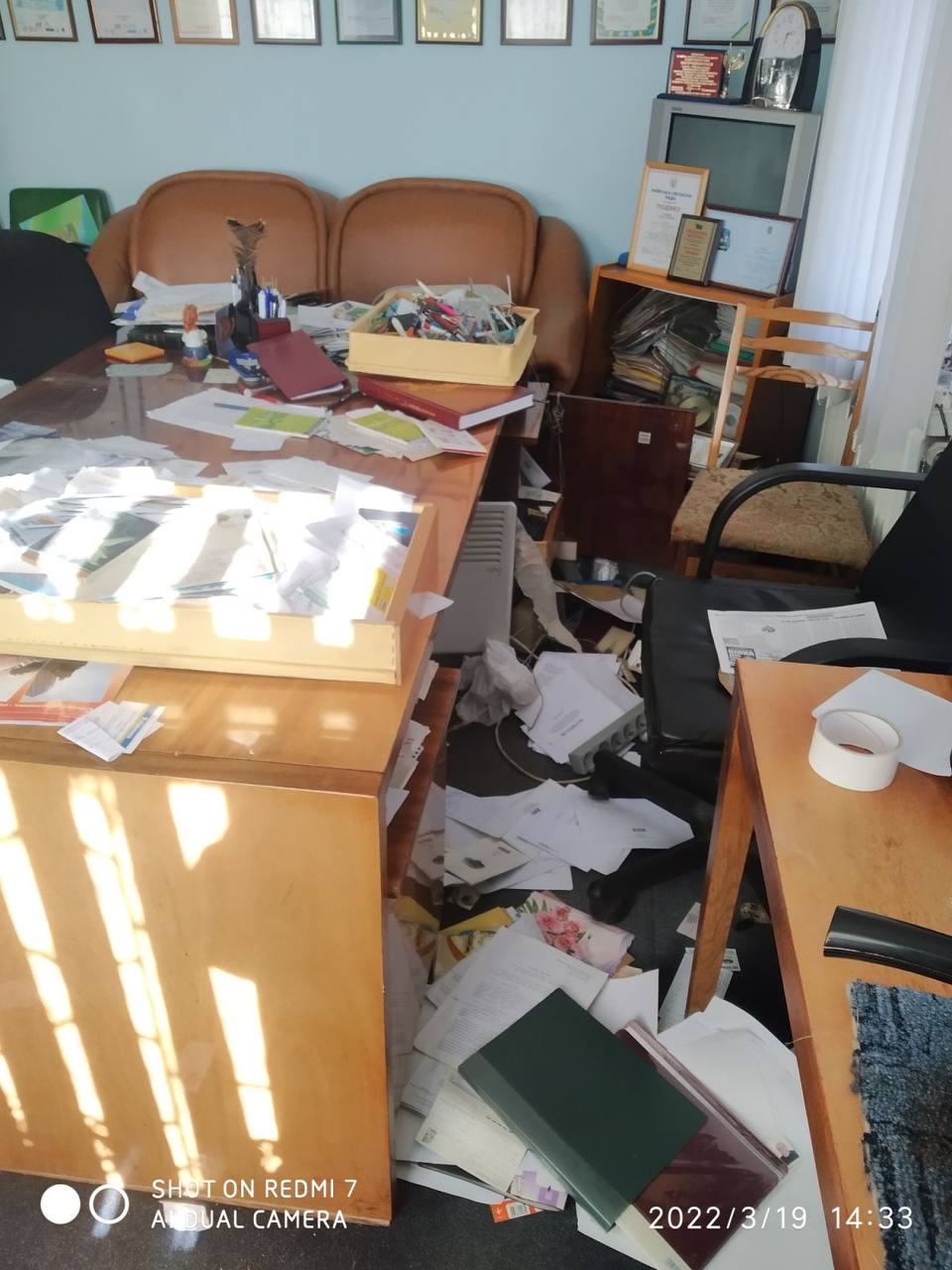
— By the end of the first half of the year, I had accrued a debt of UAH 71,000… There was no way to pay salaries or cover printing costs. So, I wrote to the readers, telling them that we were in a difficult financial situation. I had to use my pension, look for sponsors, collect small amounts… I can’t even shut down the newspaper because until all the taxes are paid, it’s not possible. And so, the issue remains unresolved,— the editor-in-chief sighs sadly.
The local authorities cannot provide assistance – by law, government bodies cannot be founders of newspapers now. So, Pavlo Yakovych has a proposal:
— I suggested that during the war and for some time after the war, changes be made to this law to allow partial state involvement in newspaper publishing. Information is needed by people now more than ever.
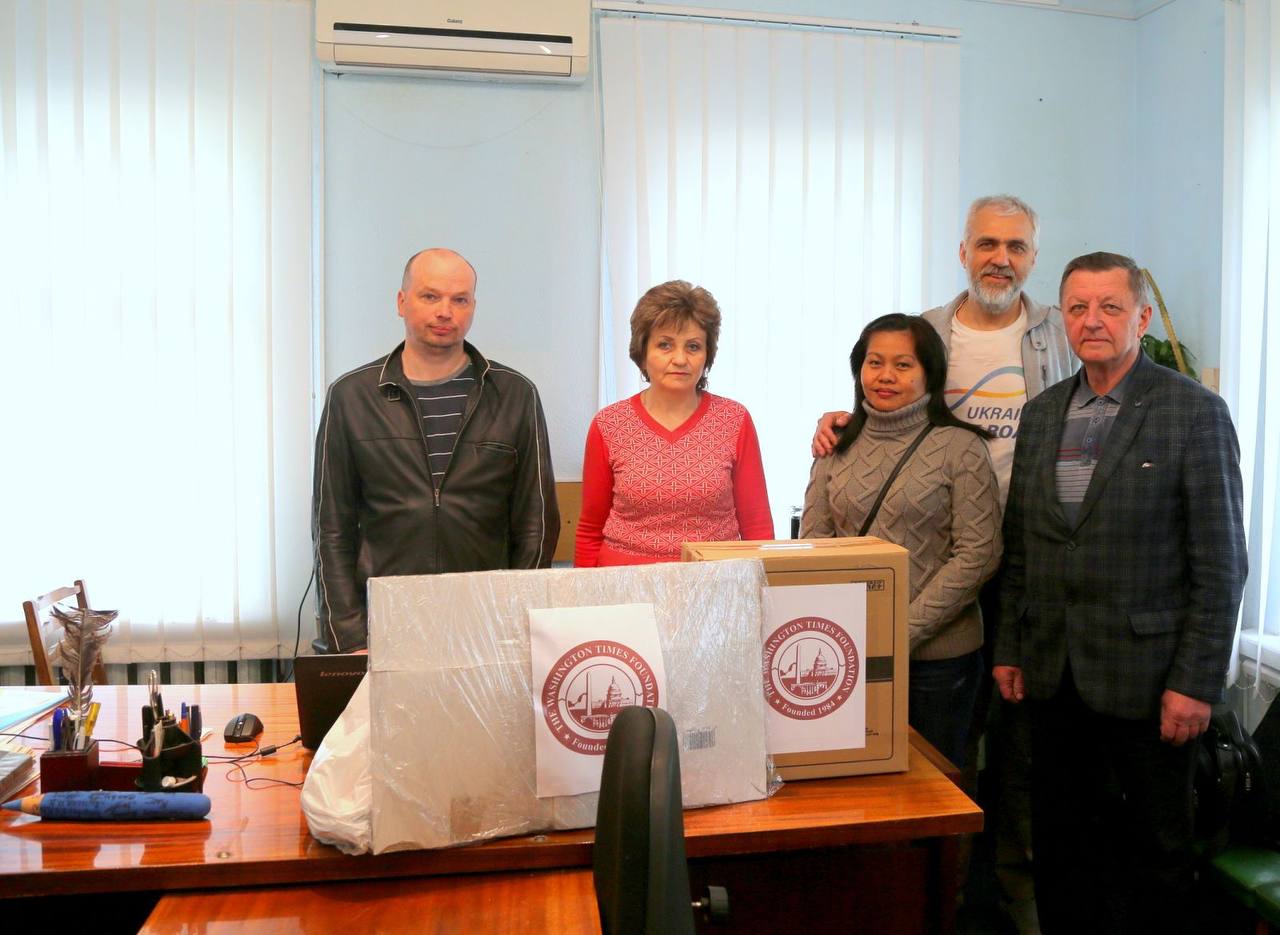
“71 years old, almost 50 years in the press, and I can’t imagine myself without journalism.”
In the present time, similar to many of his colleagues, journalists is actively working online by sharing news on social media platforms and engaging in special projects. For example, he wrote an article highlighting the bravery of the soldiers from the 10th Mountain Assault Brigade who tragically lost their lives while protecting his hometown, Ivanivka. Pavlo Yakovych found relatives of the fallen soldiers, photographs… People read about it all around the world. The editor also plans to publish a book about the occupation and de-occupation of his region. Yet, his most cherished dream is to once again smell the freshly printed pages of his newspaper Tribuna Pratsi.
— 71 years old, almost 50 years in the press, and I can’t imagine myself without journalism. That’s why I’d like to keep working as long as I have the strength,— confessed Pavlo Smovzh, the editor-in-chief of the “Tribuna Pratsi” newspaper.
Pavlo Yakovych Smovzh, editor of Tribuna Pratsi newspaper in Ivanivka, Ukraine, lived through a Russian occupation reminiscent of past horrors like the Holodomor. He endured violence and scarcity, even reviving the newspaper after liberation almost single-handedly. Despite financial struggles, he documented atrocities through photography, traveled to witness war’s impact, and shared stories online. Now, he aims to publish a book on the occupation and dreams of holding his paper’s fresh print once again. A dedicated journalist for almost 50 years, Pavlo’s commitment to truth remains unwavering at 71.
This series, titled Executed Free Speech, is created as part of a project Drawing Ukrainian And International Audience’s Attention To Serious Violations Of Human Rights And Crimes Against Journalists And Mass Media By The Russian Federation, which is performed by the National Union of Journalists of Ukraine, with support from the Swedish non-profit organization Civil Rights Defenders.
JOURNALISTS ARE IMPORTANT. Stories of Life and Work in Conditions of War is a cycle of materials prepared by the team of the NUJU with the support of the Swedish human rights organization Civil Rights Defenders.
#CRD

 THE NATIONAL UNION OF
JOURNALISTS OF UKRAINE
THE NATIONAL UNION OF
JOURNALISTS OF UKRAINE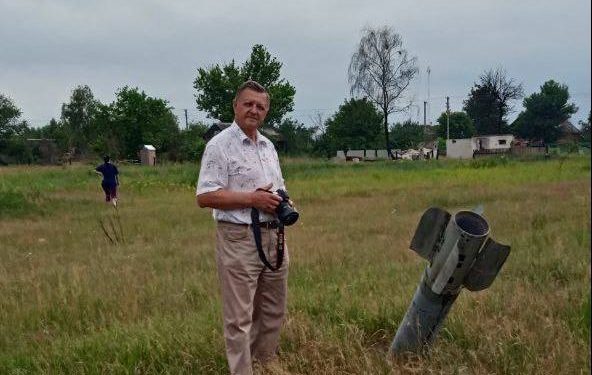
















Discussion about this post